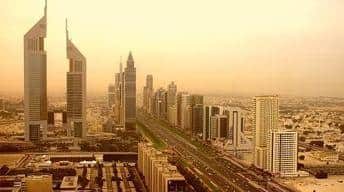Obtaining a Loan as a Foreign Business – Oman
The Sultanate of Oman is a country located to the southern end of the GCC. It has a population of around 4.6 million, with around 2 million expats. Compared to some of the other GCC and Middle Eastern countries such as the UAE and Kuwait, this is slightly low. Also the country is currently going through a process of Omanisation, and as such, the expatriate population is expected to reduce in the upcoming years, while the Oman nationals’ population is expected to grow greatly.
Oman has a very strong currency in its Omani Rials, which are among the most valuable currencies in the world. It follows suite of the other GCC countries in that it has a central bank, known as the Central Bank of Oman, which governs the countries finance sector. Some of its jobs include:
-
Governing the activities of the banks whether they are foreign or national banks within its jurisdiction
-
Act as the government bank
-
Promoting and maintaining the financial stability of the country and ensuring the steady growth of the economy
-
The distribution of the countries’ national currency, the Omani Rial and ensuring the liquidity of the banking system
At this point in time there is a very sizable population of expats within the country, and obtaining corporate loans is a very important matter
How to Obtain a Loan
The process one is required to go through in order to obtain a corporate loan within Oman is one which is quite simple. It is very much as one would expect it to be.
Required documentation:
To begin with, there will be certain items of documentation that would be required. Different banks would likely have different requirements though certain requirements will be basic and a constant among all banks. These include:
-
Company ID documents
-
Business owner’s ID documentation
-
The businesses banks statements of the last 6 months
-
There will likely be some form of application form to be filled out which would specify the details of the loan to the bank
-
Anything else the specific bank should so require and request
These items of documentation are required so that the bank is able to make an informed decision as to whether they will be willing to provide the loan in the amount that is requested.
Interest:
Islamic Banks:
The primary difference between Islamic banks and conventional banks is that Islamic banks do not charge interest. They have a different of obtaining their profits, which is a complex matter, but involves them making a set pre-determined amount of profit.
Islamic banks are also required to have Shari’a supervisory boards, which ensure that the banks comply with Shari’a law in all elements of business. Shari’a law and all things related to it are covered under section 2 of the Central Bank of Oman Islamic Banking Regulatory Framework, and the role of the board is mentioned under 2.1.1.1 and 2.1.1.2.
Conventional Banks:
There is an interest rate ceiling on commercial loans within the country which, according to the most recent Ministerial Decision 172/2016, was a 6.5% ceiling. This rate has been on a steady decrease over the last 20 or so years. There are certain exceptions to this specific limit, such as the interest rate on construction and civil engineering projects. According to the Standard Documents for Building and Civil Engineering works – fourth edition 1999, the interest rate here is 7%, and this amount is often upheld by the courts. If a dispute arises, the court will likely look to the contract signed between the individuals and proceed using what is found there.
Obtaining the Loan:
Once the documentation has been consulted by the bank, the amount of the loan can then be considered. Banks within the country have a ceiling amount that they can lend in the case of a single loan, though how much they are willing to lend will depend on who they are dealing with. The matter of the lending ceiling is covered in the Banking law of Oman. Under Article 68 (b), it is stated that the amount that can be lent to a single entity (this does not include the government, who may be lent a larger total) should not exceed 15% of the banks total net worth. This is the case under all circumstances except under the one condition mentioned under article 68 (d), which is if the loan amount is backed up or secured by collateral in cash or cash equivalent and so long as it satisfies the Central Bank. Banks often stay away from providing loans that exceed OR 500,000 though.
The contract:
Once the bank has had time to consider the proposal of the individual and look through their documents, they will then come to a decision as to whether to provide a loan or not. Should they choose to provide a loan, a contract will have to be written and signed by both parties. This contract should state the total value of the loan, the repayment period, the consequences to failing to make a repayment, the interest rate and how much variation may occur over the period of the repayment and in the case of an Islamic loan, the total and method of obtaining the profit.
In general, the method to obtaining a corporate loan in the Sultanate of Oman is as one would expect. The laws relating to the matter aren’t very plentiful compared to personal loan laws, though the basic guidelines from the CBO are present. Generally, the decision of whether a business is eligible is left to the bank from which the loan is being requested, and many different incentives and forms of loans are available.
Glossary
-
Corporate loan: a loan provided to a company in order for it to make business related purchases. This is as opposed to a personal loan which would be for a private individual to make their own non-business related purchases or cover costs
-
Islamic banks: these are banks that follow sharia law. The primary difference is that they do not charge interest on their loans
-
Conventional bank: this would include any bank that is not an Islamic bank
-
Central Bank of Oman (CBO): the Central Bank of Oman is the governing bank of Oman. Its job is to manage the financial sector of the country, and all the organisations that fall under that bracket. It ensures that the country’s economy is in a stable position. It also acts as the government bank and produces legislation that dictates the activities of all other foreign and national banks within its jurisdiction
-
Sharia Law: Islamic law that forms part of Islamic countries traditions. The rulings are derived from religious sources, and Islamic banks follow sharia law in that they do not charge interest on their loans
-
The Banking Law: Royal Decree 114 of the year 2000 is the banking law, which dictates the activities that may be performed by financial institutions within the Sultanate of Oman. It also covers the role of the CBO itself. This law repealed the previous law (number 7 of 1974), though other circulars, orders and regulations are still in action up until they are specifically repealed.
-
Circulars: these are documents that the central bank sends out to all the other banks of the country outlining new legislations and other updates the banks should be aware of
-
Ministerial Decision 172/2016
 عربي
عربي
 English
English Русский
Русский 官话
官话 português
português
 Türk
Türk 





















